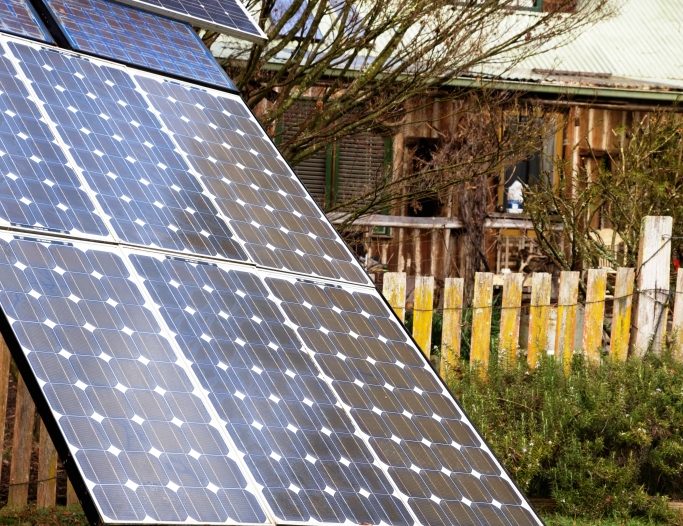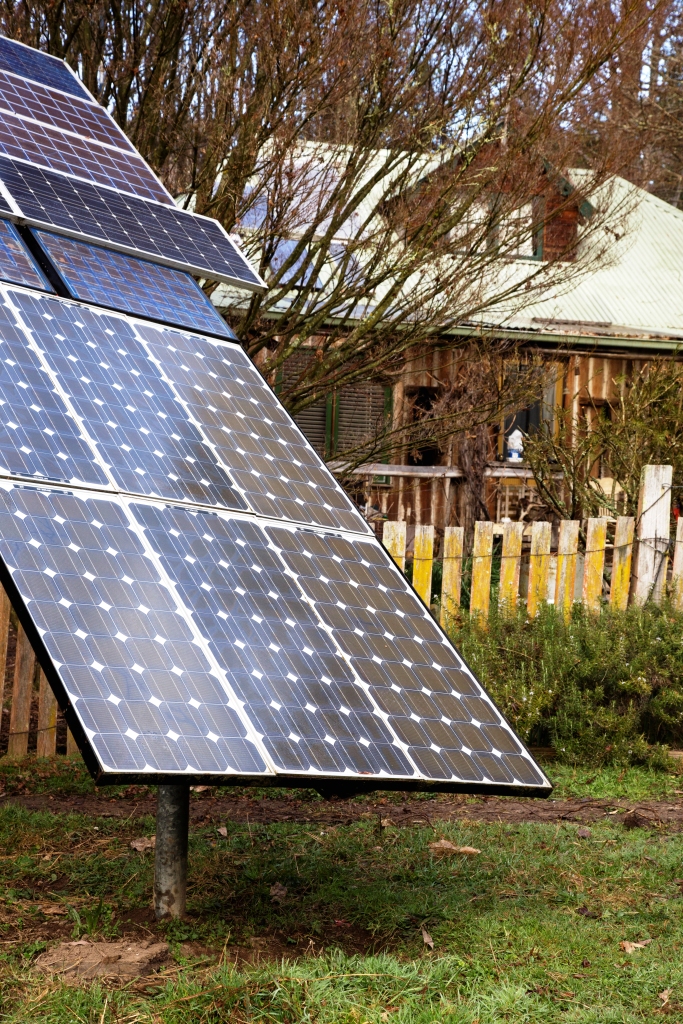
When Jill Redwood arrived in East Gippsland many years ago, it was to escape the city life she’d grown up with. When the 1983 bush fires destroyed her property, she moved to Goongerah, a tiny town of around 60 people and her path to a successful alternative lifestyle was set.
Jill Redwood has been a poster girl for environmental activism for several decades.
A columnist and cartoonist with Earth Garden magazine for 25 years, and often pictured on the cover, she’s also been on the front page of The Age newspaper following a court win to stop a rail line destroying the heavily forested area near her home.

Her off-grid lifestyle then attracted the attention of ABC Open in 2014, which led to appearances in Domain, the Daily Mail and an upcoming issue of New Idea.
“But talking to One Step Off The Grid is top of the list, of course!” Jill laughs.
Currently living with a very small solar system just under 1kW in size, Jill explains that she’s always upgraded her system to meet her modest needs, but had to start again after the Ash Wednesday bush fires in 1983 ripped through the community of Buldah near the Cann River.
“After the bush fires I started from scratch with just enough money to buy poly pipe and a chainsaw,” says Jill. “From there I built a bark hut with some secondhand timber for a roof in Goongerah.”
It was while living in her bark hut that Jill started building her current home nearby; a dirt and wood slab construction powered by a small battery bank and with vegetable gardens and an orchard.

“In Buldah I lived with candle light, a wood stove and I bucketed water from the creek when I needed a wash, so now having a hot shower and a light switch are pure ‘looxury’.” (Cue a Monty Python-esque Yorkshire accent).
“It took several years to finish it, but the overall cost was about $2000 thanks to salvaged materials and cow poo and lime render filling gaps in the walls.”
Being off-grid, both from the electricity utilities and city life itself has come naturally for Jill, who was born and bred in suburban Melbourne.
“When I was younger and adventurous, I had no taste for city life or luxuries that most people want, so to move out here was the logical thing to do,” says Jill. “Living with a low carbon footprint was the idea – I’d be happy to live in a hollow log!”

Upon moving into her luxurious new home in 1990, Jill had some knowledgeable “alternative tech geek” friends help her wire up solar panels connected to some old truck batteries all located on the front veranda.
These eventually gave way to some second-hand Telstra batteries, sourced from an old friend, and, more recently, a set of Sonnenshein gel cell batteries and an SP Pro 1300 watt inverter.
“It’s really just music, lights, office equipment and the bread maker on a sunny day, so it’s not a lot but it suits me.”
“I don’t go without anything in my home with limited power, I just don’t waste resources.”
While plenty of people dream of quitting the rat race and moving to the country, Jill’s lifestyle is a little more off-grid than most would dare attempt, such as using a water wheel to feed the header tank at the house.
However, with the support of her community and a healthy dose of humour around the current government’s support of the fossil fuel industry, Jill has been a eminently successful early adopter of an alternative lifestyle while being generous enough to share her story with others.

“I don’t often go into town because I grow most of my own food, but when I do I try to buy things with minimal packaging; we have a cooperative in Goongerah, so we buy in bulk and divvy it up.”
“I try to minimise everything, reduce, reuse and recycle, really only creating about a chaff bag full of rubbish each year.”
As for the future of renewable energy and alternative lifestyles, Jill says she’s excited about how Australians will adopt new technology.

“The sooner people can wean themselves off the fossil fuel industry the better; it’s basically what runs and what’s ruining the whole world.”
“Even without rebates, Australians will buy battery banks and beat the utilities and the government at their own game.”
As for successfully living an off-grid lifestyle, Jill says it’s been a challenge with plenty of lessons learnt along the way.
“There are two things people have to consider when going off-grid; the first is to pay attention to the amount of power you use, switching lights off in rooms and so on, minimising your energy.”
“The second is to work out what you need so you’re not going without,” says Jill.
“It really is that easy.”
The specs: The specs: Jill’s 1kW system consists of a Sonnenshein gel cell batteries and an SP Pro 1300 watt inverter.

